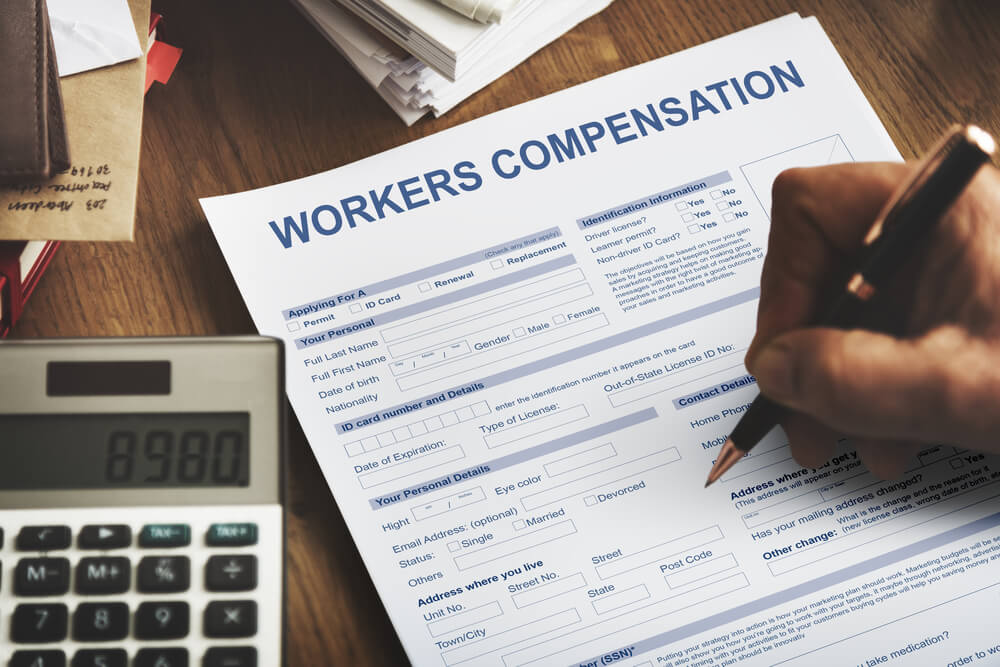What Is Workers’ Compensation and What Does It Cover?

Do you know what you will do if you get seriously injured on the job?
Workplace safety and liability issues are significant concerns. Without protections in place, both employees and employers alike may be very vulnerable if a major accident happens.
Workers’ compensation exists to provide the protection everyone needs. But, unfortunately, most people don’t know what this compensation is and what it covers.
Do you want to learn more about workers’ compensation? Keep reading to discover everything you need to know!
What is Workers’ Compensation?
Our guide is going to walk you through everything you need to know about workers’ compensation. But let’s start with the biggest question: What, exactly, is this type of compensation?
This compensation is actually a kind of insurance policy that an employer takes out. The insurance helps to pay benefits out to employees who suffer from a workplace-related injury or illness.
In this way, employees who are injured on the job don’t have to worry about losing all of their income in the time it takes them to recover from the injury.
Are Employers Required to Have Workers’ Compensation?
Whether you’re an employee or own your own business, you’re probably asking a particular question right now: Do employers have to purchase workers’ compensation? The answer to this question is both “yes” and “no.”
The answer is “yes” in the vast majority of states because state governments require employers with at least one employee to purchase this insurance. Currently, only Texas does not have a mandate on employers purchasing workers comp insurance.
We always recommend that employers purchase this type of coverage. Otherwise, the legal fees and potential medical bills that come from employee workplace injuries may be enough to put the employer out of business! In most situations, once an employee accepts their workers’ comp benefits, they have given up the right to sue the business owner.
What Does Workers’ Compensation Actually Cover?
Because workers’ compensation is an insurance policy, it’s essential for employers to check the fine print. Employees, too, should know exactly what is covered by this policy.
While the exact things that are covered may vary from plan to plan, most workers’ compensation policies cover employee wages while they are out of work. As we noted before, this ensures that a covered employee is not out of a paycheck indefinitely.
Additionally, compensation typically pays for medical coverage. Because hospital bills, prescriptions, and other medical fees can easily put someone in major debt, this protection is especially important.
Should the employee wish to sue their employer, this form of compensation can even help pay legal fees! It offers robust protection for employees performing work-related activities out of the office (such as driving around and making deliveries).

Who Actually Pays Out For Workers’ Compensation?
As you can tell, a good workers’ compensation plan can help pay for a great many things. Because of this, many workers can’t help but wonder: Who is actually paying for all of this?
Even though the employer takes out the compensation plan, the actual compensation is paid for by the insurance company. This is where the paperwork comes from: As with automobile insurance, employers and employees must provide the documentation necessary for the insurance company to pay anything at all.
If you own a newer business, you may be tempted to not get workers’ compensation as a way of saving money. But as our guide will soon reveal, it is often much more expensive in the long run for your business to skip out on this important safeguard.
Why Employees Need Workers’ Compensation Insurance
Whether they realize it or not, both employers and their employees need workers’ compensation protection. To help you understand why we are going to take a closer look at the benefits this insurance provides to employees.
We already noted the primary benefit: Thanks to this insurance, covered employees who are injured at work don’t have to worry about losing out on their only source of income. Similarly, these employees don’t have to be worried about getting buried in a mountain of medical debt as they recover from their injury.
Finally, workers’ compensation can be very empowering to employees. It provides the financial freedom for them to pursue legal action against negligent employers, if possible. On top of that, employers who understand how easily their workers can sue have that much more incentive to keep the workplace safe.
Why Employers Need Workers’ Compensation Insurance
Now you know more about why employees benefit from workers’ compensation. But do you know why this type of insurance is equally important to employers?
First, while workers’ compensation can help workers sue an employer, most policies also provide the employer with liability coverage. This helps to pay for various legal fees as the employer defends himself in court. Without such protection, a prolonged legal battle would be enough to end most small businesses, even if they eventually won the case.
Second, without this insurance in place, you would likely have to pay for things like the medical bills of injured employees in order to keep them from suing you. And these out-of-pocket costs are typically far greater than regularly paying for workers’ compensation.
Finally, a good workers’ compensation policy can actually be a recruitment and retention tool for your business. When employees realize you have a policy that helps to protect their financial interests, they are likelier to work (or continue working) for your company.
What is Typically Not Covered by Workers’ Compensation?
While workers’ compensation covers many things, there are a few things it doesn’t cover. While you would need to check your own policy for the specifics, here are a few things that are typically not covered by these policies.
For the most part, workers’ compensation does not payout if the employee was clearly at fault. This includes when an employee is working in an impaired state (as revealed by blood/alcohol tests), if the injury was self-inflicted, or if the employee was injured while in the midst of breaking the law.
Get the Best Workers’ Compensation Today
Now you know more about what workers’ compensation is and what it covers. But do you know where employers can get the best compensation plans?
Here at Insure One, we make it easy for employers to protect themselves and their employees. To see how we can keep everyone safe, come explore our workers’ compensation options online today! Alternatively, you can discuss your options with us at the nearest office or by phone at 800-836-2240.


